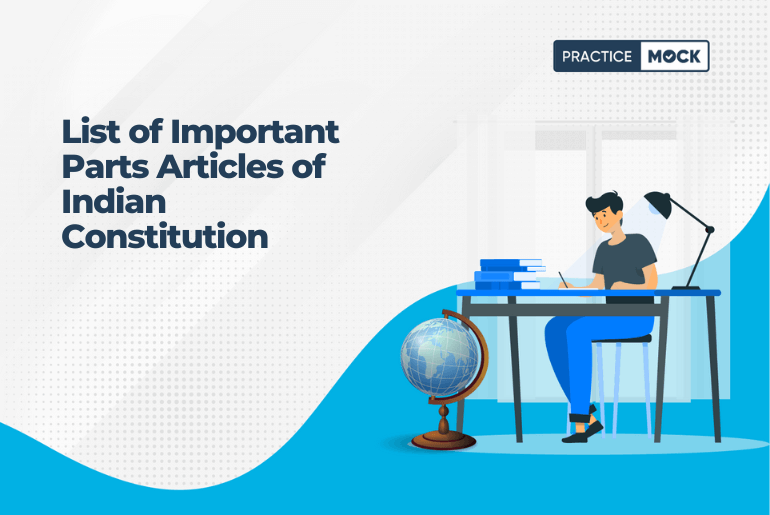List of Important Parts Articles of Indian Constitution


Important Parts Articles of Indian Constitution: The Indian Constitution is the fundamental document that governs the world’s largest democracy. It is a comprehensive text, and it is divided into numerous parts, articles, and schedules, each addressing specific aspects of governance and rights. Let’s delve into some of the essential parts and articles of the Indian Constitution.
Part I: The Union and Its Territory (Articles 1-4)
This part defines India as a Union of States, specifies the names and territories of states and union territories, and outlines the power of Parliament to alter state boundaries.
Part II: Citizenship (Articles 5-11)
Part II defines who qualifies as a citizen of India, the provisions for acquiring and terminating citizenship, and the rights of citizens.
Part III: Fundamental Rights (Articles 12-35)
Part III of the Indian Constitution is one of the most critical sections. It includes fundamental rights such as the right to equality, right to freedom, right against exploitation, right to freedom of religion, cultural and educational rights, and the right to constitutional remedies.
Part IV: Directive Principles of State Policy (Articles 36-51)
This part of the Constitution contains the directive principles, which guide the state in policy-making, emphasizing social and economic justice.
Part V: The Union (Articles 52-151)
Part V discusses the Union executive, including the President, Vice President, Prime Minister, Council of Ministers, and Attorney General.
Part VI: The States (Articles 152-237)
Part VI pertains to the state governments and includes details about the Governor, Chief Minister, and the state Council of Ministers.
Part IX: The Panchayats (Articles 243-243O)
Part IX deals with Panchayats, which are essential in the decentralization of power in India’s federal structure.
Part IXA: The Municipalities (Articles 243P-243ZG)
This part focuses on municipalities and their role in local governance.
Part X: The Scheduled and Tribal Areas (Articles 244-244A)
Part X contains provisions related to the administration of scheduled and tribal areas.
Part XII: Finance, Property, Contracts, and Suits (Articles 264-300A)
This part discusses various financial matters, including distribution of revenues between the Union and states.
Part XIV: Services Under the Union and States (Articles 308-323)
Part XIV addresses the services under the Union and states, with a particular focus on All India Services.
Conclusion
The Indian Constitution is a living document that continues to evolve with amendments and interpretations. These parts and articles collectively form the backbone of Indian governance, protecting fundamental rights, directing government policy, and outlining the structure of government. Understanding these provisions is crucial for every Indian citizen and anyone interested in the governance of this diverse and vibrant nation.
Recent Posts
High-Scoring Topics in IBPS PO Exam 2025, Check Weightage
Check out high-scoring topics for IBPS PO 2025. Check topic-wise weightage for Quant, Reasoning, English…
180-Day IBPS PO Prep Timeline for Prelims, Mains & Interview
Follow this proven 180-day strategy to prepare for IBPS PO Prelims, Mains, and Interview with…
Most Repeated Floor Based Puzzle Questions for RRB PO 2025, Check How to Solve it Speedily?
Here we are providing the Most Repeated Floor Based Puzzle Questions for RRB PO 2025…
RRB ALP Vacancy 2025-26 Out for 9970 Posts, Notification Expected Soon
The RRB has released the RRB ALP Vacancy 2025-26 for 9970 Posts. This blog has…
SSC CGL Previous Year Question Paper in Form of Free Quiz and PDF
This blog has provided the SSC CGL Previous Year Question Paper in the form of…
500 SSC CGL Repetitive One-Word Substitutions
In this blog, we have provided the 500 SSC CGL Repetitive One-Word Substitutions PDF to…


